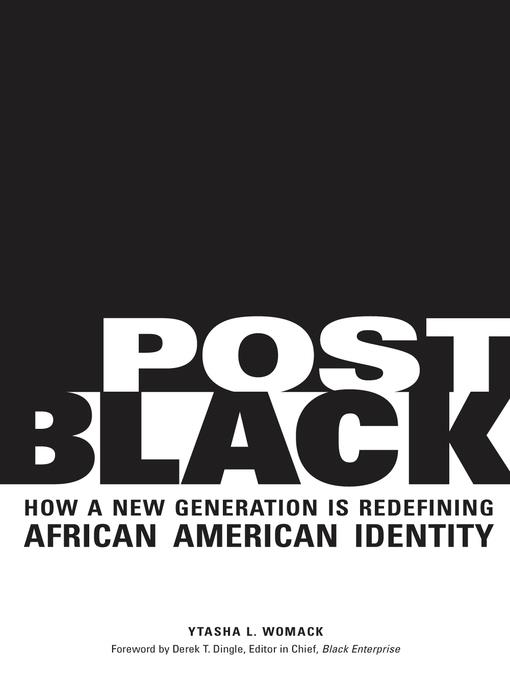
Post Black
How a New Generation Is Redefining African American Identity
فرمت کتاب
ebook
تاریخ انتشار
2010
نویسنده
Derek T. Dingleناشر
Chicago Review Pressشابک
9781569765418
کتاب های مرتبط
- اطلاعات
- نقد و بررسی
- دیدگاه کاربران
نقد و بررسی

Starred review from January 4, 2010
Using the 2008 election of Pres. Barack Obama as a springboard, Chicago writer and editor Womack (Beats, Rhymes and Life: What We Love and Hate About Hip-Hop) launches an engaging and ambitious discussion of African American identity in the 21st century. Rather than concentrate on the spectacular or "every pathological condition that ever existed in African American life," Womack shines a bright light on the ever broadening, increasingly visible black middle classes that remain largely unseen by white America: young black professionals, immigrants from Africa and the Caribbean, LGBT members, community-based artists, and others. A chapter on generation gaps pinpoints key differences amongst successful black baby boomers ("the so-called defenders of black identity"), Gen Xers, and millennials, especially in their views on community and tradition (a common trait among boomers and millennials: disdain for Xer extravagance and solipsism). Womack also charts the practicalities and bizarre ironies of greater cultural exposure (one chapter addresses the awkwardness of encounters with people-friends and strangers-who ask the question "What are you?"). Adjusting the lens on black America, Womack focuses in on a population diversifying in a number of positive directions, making headway against those who would rather ignore change: "in shifting the paradigm, these outliers shift the power to define what being African American truly is."

Starred review from November 15, 2009
Just beneath the surface of black American culture are changes that signal the end of the one size fits all definition of what it means to be black in the U.S., according to cultural commentator Womack. The election of Barack Obama was one highly visible sign of the challenges to standard notions of black identity. Womack identifies several emerging groups of the seen but unseen who are having a huge impact on black America: young black professionals; African and Caribbean immigrants; non-Christians; gays, lesbians, bisexuals, and transsexuals; biracials and multiracials; and community-based artists. Devoting separate chapters to these subconstituents of black culture, Womack analyzes the swirling debate about authenticity, who is black, what the black experience means, and who gets to define it. She includes a scathing critique of the pseudonymous Institution, a venerable black civic organization that has ignored the younger generation at its peril, and debunks some of the more woeful notions attached to black folks lack of progress. Although recent developments are forcing a reexamination of assumptions about race, Womack emphasizes that this doesnt mean an end to racism. It does, however, raise an important question: How much of black identity is a summation of countering racism, and how much of it is authentically black? Insightful and compelling.(Reprinted with permission of Booklist, copyright 2009, American Library Association.)

























دیدگاه کاربران